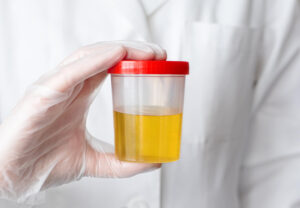Follicle-Stimulating Hormone (FSH) plays a crucial role in female fertility. Produced by the pituitary gland, it regulates ovarian function, stimulates follicle growth, and helps maintain a healthy menstrual cycle. For those trying to conceive, understanding FSH Normal Range is essential, as it provides valuable insights into ovarian reserve and overall reproductive health.
What is FSH and Why is it Important?
Follicle-Stimulating Hormone is one of the key hormones responsible for reproductive function in both men and women. In females, FSH promotes the growth and maturation of ovarian follicles, which house the eggs. It also plays a role in estrogen production, a hormone necessary for ovulation and pregnancy. Without adequate FSH levels, normal ovarian function may be compromised, potentially leading to fertility challenges.
Since FSH levels fluctuate throughout the menstrual cycle, measuring it at the right time is crucial. Doctors typically recommend checking FSH levels on the second or third day of the cycle when it provides an accurate assessment of ovarian reserve.
What is a Normal FSH Level to Get Pregnant?
Many women wondering about their fertility often ask, “What is a normal FSH level to get pregnant?” The answer depends on various factors, including age, reproductive history, and overall health.
Generally, an FSH level below 10 mIU/mL on Day 3 of the menstrual cycle is considered optimal for fertility. According to medical sources, normal FSH levels for menstruating women typically range from 4.7 – 21.5 mIU/mL, though levels below 10 are preferable for conception. Higher FSH levels may indicate diminished ovarian reserve (DOR), meaning the quantity and quality of eggs available for fertilization are reduced.
Women with elevated FSH levels may still conceive, but it may require medical intervention such as in vitro fertilization (IVF) or ovarian stimulation therapies.
The Purpose, Procedure, and Normal Values for FSH Test
An FSH Test helps evaluate ovarian function and assess reproductive health. Doctors often recommend this test for individuals experiencing irregular menstrual cycles, difficulty conceiving, or signs of hormonal imbalances.
Purpose of an FSH Test
- Assessing ovarian reserve and egg quantity
- Diagnosing conditions like polycystic ovary syndrome (PCOS) or premature ovarian failure
- Determining causes of irregular or absent periods
- Evaluating pituitary gland function
- Identifying early menopause
Procedure for FSH Testing
- Timing: The test is typically performed on the second or third day of the menstrual cycle to provide accurate insights into ovarian function.
- Sample Collection: A healthcare professional collects a blood sample from a vein in the arm.
- Laboratory Analysis: The blood sample is analyzed to measure the concentration of FSH.
Normal Range for FSH Testing
- Menstruating Women: 4.7 – 21.5 mIU/mL (though <10 mIU/mL is preferred for fertility)
- Postmenopausal Women: 25.8 – 134.8 mIU/mL (higher levels due to ovarian function decline)
- Men: 1.5 – 12.4 mIU/mL (important for sperm production)
Interpreting FSH Test Results
Interpreting an FSH test result correctly is crucial for fertility planning:
- Low FSH Levels (<4 mIU/mL): May indicate inadequate ovarian stimulation by the pituitary gland, possibly due to hypothalamic or pituitary dysfunction.
- Normal FSH Levels (4.7 – 10 mIU/mL): Suggests good ovarian reserve and better chances of conception.
- High FSH Levels (>15 mIU/mL): Could indicate diminished ovarian reserve, requiring further assessment.
- Extremely High FSH Levels (>25 mIU/mL): Often a sign of ovarian failure or menopause.
How to Reduce FSH Levels in Females
Women diagnosed with high FSH levels often seek ways to manage and improve their fertility prospects. While FSH levels naturally increase with age, some lifestyle changes and medical interventions can help regulate hormonal balance.
Natural Ways to Reduce FSH Levels
- Balanced Diet: Eating fertility-friendly foods, including leafy greens, healthy fats, and lean proteins, can support hormone balance.
- Acupuncture and Traditional Medicine: Some women find acupuncture and herbal medicine beneficial for regulating hormonal levels.
- Stress Reduction: High stress levels can contribute to hormonal imbalances, so activities like yoga, meditation, and deep breathing can be helpful.
- Exercise Moderation: Engaging in moderate physical activity without excessive high-intensity workouts can help balance hormones.
- Supplements: Some studies suggest that DHEA, CoQ10, and Omega-3 fatty acids may support ovarian function and lower FSH.
Medical Interventions for High FSH Levels
For women with persistently high FSH levels, fertility specialists may recommend:
- Estrogen Therapy: Used in some cases to suppress FSH levels and improve response to fertility treatments.
- IVF with Ovarian Stimulation: Women with high FSH may still conceive using assisted reproductive technologies.
- Egg Donation: For those with significantly diminished ovarian reserve, egg donation is an option for achieving pregnancy.
Next Steps After FSH Testing
If your FSH Normal Range falls outside the optimal levels, here’s what to do next:
1. Consult a Fertility Specialist
A reproductive endocrinologist can provide tailored advice and further testing, including Anti-Müllerian Hormone (AMH) testing and antral follicle count (AFC) scans.
2. Consider Additional Hormone Testing
Since FSH alone does not provide a full picture of fertility, checking other hormones like:
- Luteinizing Hormone (LH) – Regulates ovulation
- Estradiol (E2) – Supports egg development
- Anti-Müllerian Hormone (AMH) – Directly measures ovarian reserve
3. Implement Lifestyle Modifications
Maintaining a healthy lifestyle can positively impact hormone levels and overall reproductive health.
4. Explore Fertility Treatment Options
Depending on your results, treatment options may include:
- Ovulation induction medications (e.g., Clomid, Letrozole)
- IVF with ovarian stimulation
- Using donor eggs (if ovarian reserve is very low)
If you are concerned about your Normal FSH Level and how it affects your chances of conception, consult a fertility specialist to discuss further testing and treatment options. By taking proactive steps and seeking expert guidance, you can navigate your fertility journey with confidence and clarity.
At Boon IVF Fertility Center, our team of fertility specialists is committed to providing personalized care and state-of-the-art fertility treatments. Whether you need help interpreting your FSH test results or exploring treatment options, our experts are here to guide you. Contact Boon IVF today to schedule a consultation and take the next step toward your parenthood journey.


